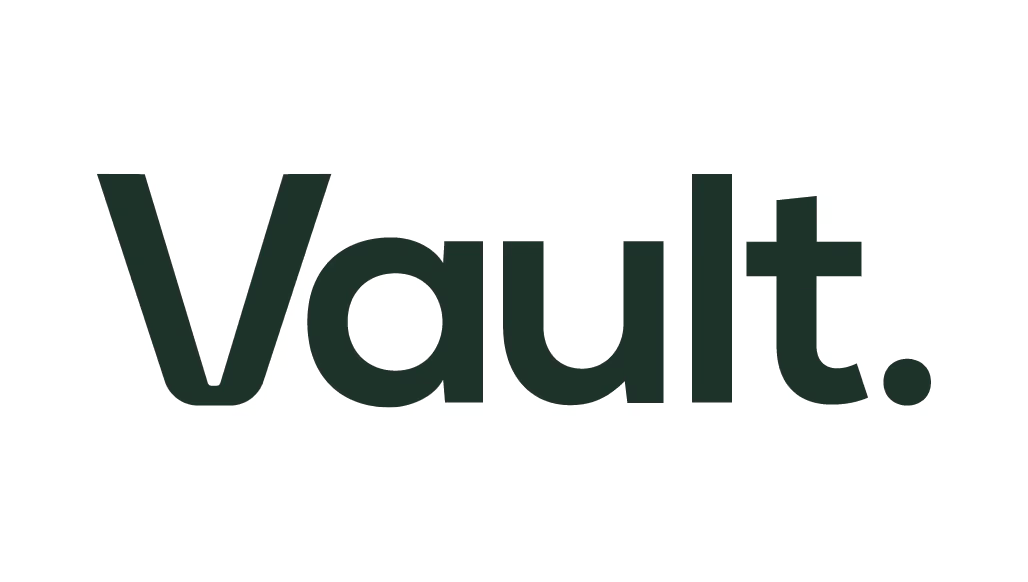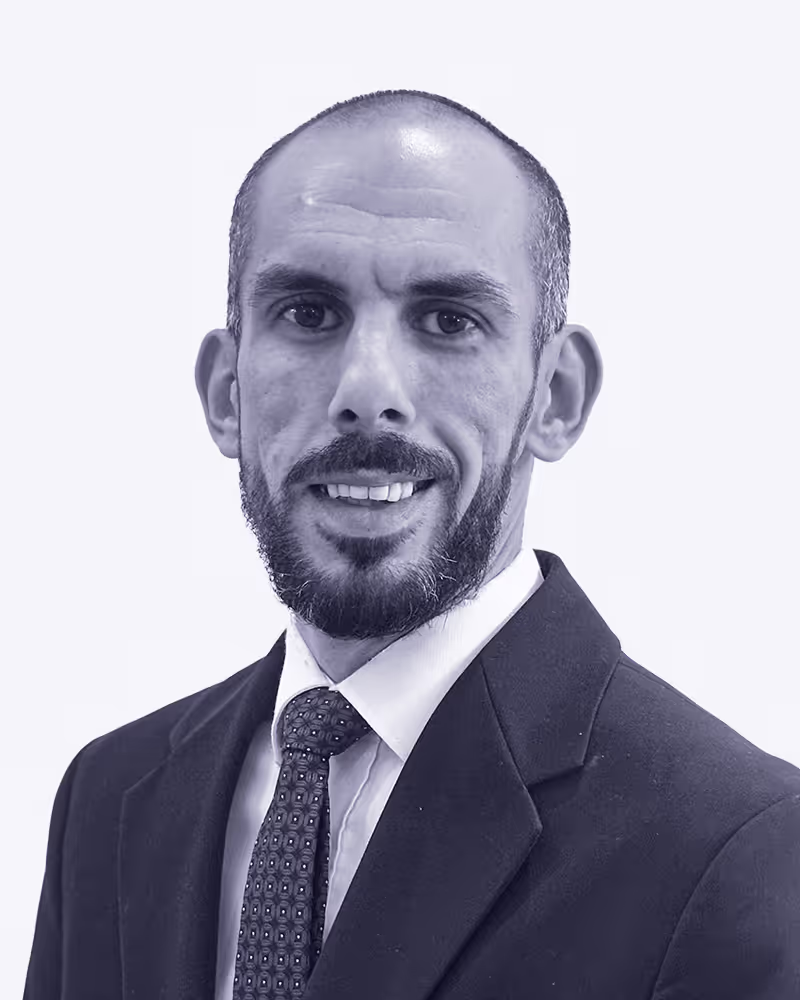Chief Future Officer
MIDDLE EAST
Discover Middle East's fastest-growing community of finance experts. Join us for candid discussions, exclusive events & tons of networking opportunities, where valuable insights await to empower your journey in the future of finance.
Finance Meet-ups:
Physical workshops, social networking gatherings, and live webinars focusing on core finance and accounting topics.
Online Community
An active community on Whatsapp and a dedicated space for exchanging strategies and job opportunities.
Educational Material
Expert interviews, comprehensive articles, and guides prepared to help finance leaders
The Job Vault
A curated job board connecting finance professionals with tailored job opportunities and resources for career growth.
Engage with top finance minds from Middle East's rapidly evolving companies














Events at Alaan
Join the discussions on everything fintech
Chats with Chief Future Officers
Top leaders in the Middle East discussing the future of finance




“In the future of finance, challenges like gaining client trust, regulatory approval, and data protection will be crucial as AI brings more personalised services to the forefront of wealth management.”

What upcoming technologies are likely to be more prevalent in the finance industry?
Advancements in technology, especially AI, will heavily influence the future of finance. AI will be significant in providing personalised financial advice and optimising wealth management processes. Additionally, the integration of open banking and digital-first solutions will make financial services more efficient, transparent, and client-centric. While there will be regulatory and data protection challenges, the overall goal is to create a more innovative and client-focused financial ecosystem.
What is one big area where you find AI to be particularly beneficial?
One major benefit of using AI is its ability to provide highly personalised financial advice by analysing vast amounts of client data.
At Vault, we're developing an AI module integrated with OpenAI's technology to provide personalised financial recommendations. By leveraging extensive client data, such as assets, income, and expenses, our AI will act as a co-pilot alongside our wealth advisors. This AI will help tailor specific advice and suggestions that closely align with individual needs and goals, making financial planning more accurate and effective.
However, it's crucial to ensure regulatory compliance and data protection. While there are challenges, particularly in gaining client trust and regulatory approval, I see AI playing a significant role in the future of financial services.
Talking about automation, can you share an example of automation being used at Vault?
At Vault, we’ve automated compliance by leveraging our engineering team's capabilities.
We've developed systems that can onboard clients and provide risk ratings within seconds, which used to take hours. This is achieved through API integrations that streamline various compliance checks and ensure that our processes are both efficient and compliant with regulatory standards. This automation significantly reduces the time and resources needed for compliance, allowing us to focus more on serving our clients effectively.
Bio
Sami Abdul Hadi is a leader in fintech and wealth management. He began his career at Standard Chartered Bank in Hong Kong, and later worked at Deloitte and HSBC in the UAE, where he gained valuable experience in the financial industry.
Sami co-founded Vault to create a transparent, digital-first wealth management platform. Drawing on his enthusiasm for technology, he successfully built a tech-focused team that drove Vault’s growth in the affluent market segment.
At Vault, Sami leads investment strategies, marketing, and sales, using AI to improve financial advisement. He also plans to launch Vault Academy to educate future wealth managers.




"The current struggle with the introduction of AI lies in ensuring that, despite the efficiencies gained through AI, the finance sector does not lose sight of the importance of understanding and connecting with customers on a personal level."

Where do you see the future of finance headed in the Middle East in the next 5 years?
I believe the finance sector in the Middle East, particularly in the UAE, is moving towards smarter, more intelligent solutions. The UAE will continue to solidify its role as a major financial hub, with an emphasis on simplifying banking and financing processes. This advancement towards easier access to funds, powered by technological innovation, is a trend I see persisting.
Ever since AI has been introduced to the finance function, how do you think it has impacted finance professionals?
AI, in my view, is an essential tool that has reshaped the finance sector, but it's critical to remember it doesn't replace the human element. While AI offers potential for efficiency and innovation, the sector's shift towards stringent KYC and anti-money laundering measures has highlighted a gap in customer service. It's a reminder that technology should augment, not overshadow, the personal touch in financial services.
With AI and digital transformation being in the picture, what sort of challenges do you see the finance function facing in the Middle East?
The introduction of AI and digital transformation brings forth challenges, particularly in maintaining a balance between technology and human interaction. The current struggle lies in ensuring that, despite the efficiencies gained through AI, the finance sector does not lose sight of the importance of understanding and connecting with customers on a personal level. The frustrations around the impersonal nature of digital banking and the inefficiencies of the KYC process underscore the need for a more nuanced approach where technology serves to enhance, not replace, human relationships in finance.
Bio
Mark Trotter is the Founder & the Managing Director at Unified Aviation, a key player in Dubai's Urban Air Mobility sector. With more than 20 years of experience in aviation and finance across the Middle East, his career has spanned significant roles, contributing to strategic planning and business development in the aerospace industry. At Unified Aviation, his leadership & strategic insights have been vital in driving growth and innovation within the organization.




"I hate the term gatekeeper for CFOs. I think it's how they have been seen historically, and it's important for us to change our opinion of people as a function."

How do you manage the financial challenges of a fast-growing business such as Holo, particularly those related to cash flow, budgeting, and expense management?
It's been a remarkable year with our business growing each month. While this excites everyone in the company, it presents unique challenges for the finance function. The rapid growth means traditional annual or even quarterly budgets aren't practical for us at this stage.
Our primary challenge is maintaining financial flexibility. We need to constantly review and reassess our spending, identifying areas that are working well and where we need to increase investment. The speed of decision-making and execution is crucial for us in this environment. It also means we have to be highly adaptable and continuously evaluate our financial strategies to keep pace with our growth rate.
How do you see AI and digital transformation impacting the future of the finance industry?
I'm not overly bullish on AI in its current state, viewing it more as infrastructure with potential for the future. It can sometimes be overused as a buzzword in pitch decks. However, I see value in specific, targeted AI applications rather than broad-spectrum AI like ChatGPT.
AI is still in its infancy, and globally, we're figuring out its best uses. There's fear about job displacement, but AI will improve day-to-day work, allowing people to focus on more valuable tasks. I've seen this in auditing, where AI hasn't replaced jobs but has made work more enjoyable and allowed auditors to provide more value to clients.
I'm selective about which AI tools we use, but I'm always open to solutions that can save my team time. We use some AI-powered tools for tasks like OCR and spend management, which have proven effective.
Talking about tools, are there any tools you’ve currently implemented in the finance function that you are particularly happy with?
In our finance function, we've implemented several tools that I'm particularly pleased with. One standout is our utilisation of an OCR (Optical Character Recognition) tool for expense recognition, which has greatly improved our spending efficiency. Additionally, our internal development of an AI tool for automating portions of our mortgage application process has also significantly helped, allowing us to process applications more quickly and accurately.
Are there any podcasts and resources you learn from to stay updated?
There's a lot of good stuff out there. Personally, 'Zero to One' is a favourite for insights into startup journeys, while 'Couch Economics with Arjun’ offers a regional perspective on Middle East economics.
Bio
James Evans is an experienced financial leader with a background in consulting at PwC and strategic roles in high-growth startups such as Tarabut and Holo. He eccles at making finance plans that work well for different types of businesses. His primary focus is maximising gross margins and optimising working capital for businesses.
As a CFO, James prioritises collaboration over the traditional gatekeeper role. He likes using new tools to make boring jobs easier, so his team can do more important work. When hiring people, he looks for those with a good attitude and the ability to learn, especially in new companies that change quickly. He's excited about the future of fintech in the Middle East.
James holds a bachelor's and master’s degree in finance and an ACCA qualification.




"The finance function is moving beyond traditional transactional processing, to more predictive analytics and forecasting. The use of data science in finance is becoming critical, as it allows for better decision-making and strategic planning"

Where do you see the future of finance headed in the Middle East in 5 years?
In my opinion, the future of finance in the Middle East for the next five years will involve a transition from transaction processing to a greater emphasis on compliance and more partnership-oriented roles in the industry. We'll see increased adoption of digital technologies by companies to enhance efficiency and a shift towards predictive analytics. A cashless economy will likely emerge, driving fintech, payment, and blockchain innovations.
With AI being in the picture, what challenges do you see the finance function facing in the Middle East?
The concern here is definitely about potential job losses in finance. Some folks are just not too keen on adapting to new technologies and learning new skills. There's a fair share of traditional thinkers in our field, and that kind of resistance to change can lead to job cuts. It's quite staggering, really; there's this estimate floating around that suggests nearly half of finance functions might become irrelevant in the next three to five years. So, to tackle these challenges with AI, it's important to upskill and dip your toes into data science. Those are the main challenges I see with AI adoption.
Where do you see the future of finance headed in the Middle East in 5 years?
In my opinion, the future of finance in the Middle East for the next five years will involve a transition from transaction processing to a greater emphasis on compliance and more partnership-oriented roles in the industry. We'll see increased adoption of digital technologies by companies to enhance efficiency and a shift towards predictive analytics. A cashless economy will likely emerge, driving fintech, payment, and blockchain innovations.
Bio
Shafeeka Salim is a Finance Business Partner at Hello Chef, UAE's leading meal kit company. With over 9 years of expertise in accounting and financial management, she excels in developing financial policies, risk management, and process enhancements to ensure corporate stability. Her achievements include leading cost-saving initiatives and process migrations, contributing significantly to operational efficiency. Shafeeka's strategic approach and analytical skills have been pivotal in supporting Hello Chef's growth, showcasing her commitment to excellence and innovation in finance.




Not just in finance—senior leadership, in general, is moving away from the gatekeeper mindset. CFOs today are collaborative leaders, working across departments to provide data-driven insights rather than just controlling spending.

You have had an impressive career moving from consulting at Deloitte and KPMG to leading finance teams at fast-growing startups like Careem and now SilkHaus. How did your role evolve as you moved from consulting to the executive level?
It’s been quite a transition. In consulting, you advise on strategy and best practices, but you're not accountable for execution. You don’t deal with execution risks. In an executive role, especially in a startup, you shift to deep process and industry knowledge. You make quick decisions with imperfect data and limited resources. Resilience becomes key—you try one strategy, it doesn’t work, but you adapt and push forward. That’s not something consulting prepares you for.
Your work spans real estate, retail, and corporate development. How do you adapt your financial strategy across different sectors?
Each industry, even each revenue line, works differently. At a fundamental level, a CFO manages revenue and cost structures. But what really matters is identifying the key drivers behind those numbers, which differ dramatically across industries. At Careem, growth depended on repeat usage—more rides meant more revenue. At SilkHaus, it's about transaction value, not frequency. Every sector has unique nuances, and you need to be agile enough to adapt.
CFOs were traditionally seen as gatekeepers, but do you think that role has evolved?
Not just in finance—senior leadership, in general, is moving away from the gatekeeper mindset. CFOs today are collaborative leaders, working across departments to provide data-driven insights rather than just controlling spending.
You don’t always fully grasp another department’s challenges, so an open, data-backed approach helps align everyone toward company goals. When communication is strong, insights become actionable, and execution improves.
When hiring for your finance team, do you prioritise education, experience, or willingness to learn?
The top priority is team dynamics—working with the right people matters most. Next is a growth mindset, as startups require adaptability. Hands-on experience is valuable, but pedigree only matters when choosing between equally strong candidates.
AI and digital transformation are major topics in finance. How do you see these technologies shaping the industry?
AI is streamlining repetitive finance tasks like reporting and reconciliation, making teams more efficient. It enhances predictive analytics, helping us anticipate guest needs, optimize costs, and improve cash flow planning. Real-time reporting is another game-changer, instead of waiting for monthly reports there are instant insights for better forecasting and decision-making.
How do you see finance evolving in the Middle East? And how do you think fintech will continue to impact the finance landscape here?
The UAE is becoming a fintech hub, with strong government support, including regulatory sandboxes for testing new solutions. With $40B in crypto holdings and progressive policies, the region is well-positioned for financial innovation. Despite global economic slowdowns, the UAE always continues to emerge stronger.
Do startups have an edge over larger companies in adopting AI, and how can tech adoption drive growth in a fast-paced startup environment?
Larger companies have an advantage in AI due to their vast data, which improves model accuracy. Startups, however, win on agility—quickly testing, iterating, and pivoting based on results. A strong experimentation culture allows startups to fail fast, learn, and adapt, something big companies struggle with.




"Finance has benefited greatly with the introduction of AI, automating extremely important and sensitive tasks like bookkeeping, allowing finance professionals to focus on strategic interpretation and decision-making."

Where do you see the future of finance headed in the Middle East in the next 5 years?
In the next five to ten years, we'll be moving away from a very traditional approach in finance towards a more structured, compliance-driven framework. This is due to new corporate taxes and regulatory measures being implemented. As a result, finance professionals in the Middle East must adapt to increased scrutiny and the need for transparent operations. It's a huge shift that requires us to be more precise in our financial reporting and decision-making.
Ever since AI has been introduced to the finance function, how do you think it has impacted finance professionals?
I find AI's introduction to finance to be a game changer. It has revolutionized finance by automating tasks and improving accuracy, thus reducing human errors. It enables us finance professionals to shift from mundane bookkeeping to strategic tasks like analysis and decision-making. This transition allows for a focus on value-driven activities, enhancing the finance function's efficiency and effectiveness.
With AI and digital transformation being in the picture, what sort of challenges do you see the finance function facing in the Middle East?
The integration of AI and digital transformation brings several challenges. The reliance on third-party data providers and the need for accurate data synchronization between different systems pose significant risks. If the data isn't accurately reflected in our systems, it can lead to substantial issues in financial management and reporting. Ensuring data accuracy and integrity is a major challenge as we move towards more automated processes, highlighting the need for robust systems to manage these changes effectively.
Bio
Abhishek Tak is a Finance Manager at GuestReady, a leading global hospitality and property management tech company. With over 9 years of experience in finance, Abhishek's qualifications from ACCA (UK), CIA (USA), and Accounting Tech (India) have been pivotal in his roles. At GuestReady, Abhishek has been instrumental in enhancing financial reporting and aligning the company with UAE tax regulations. His prior role as a tax advisor for high-net-worth individuals in the UK has honed his skills in navigating complex financial landscapes. Renowned for his pragmatic problem-solving approach, Abhishek's contributions have been crucial in driving GuestReady's financial growth and stability.
Guides to fast track your finance
Well-researched guides to help finance leaders in the UAE
Join the Community
Shape the future of finance. Engage with top leaders in the finance industry and become a part of the Chief Future Officer Community.









.avif)





.avif)












%201.avif)